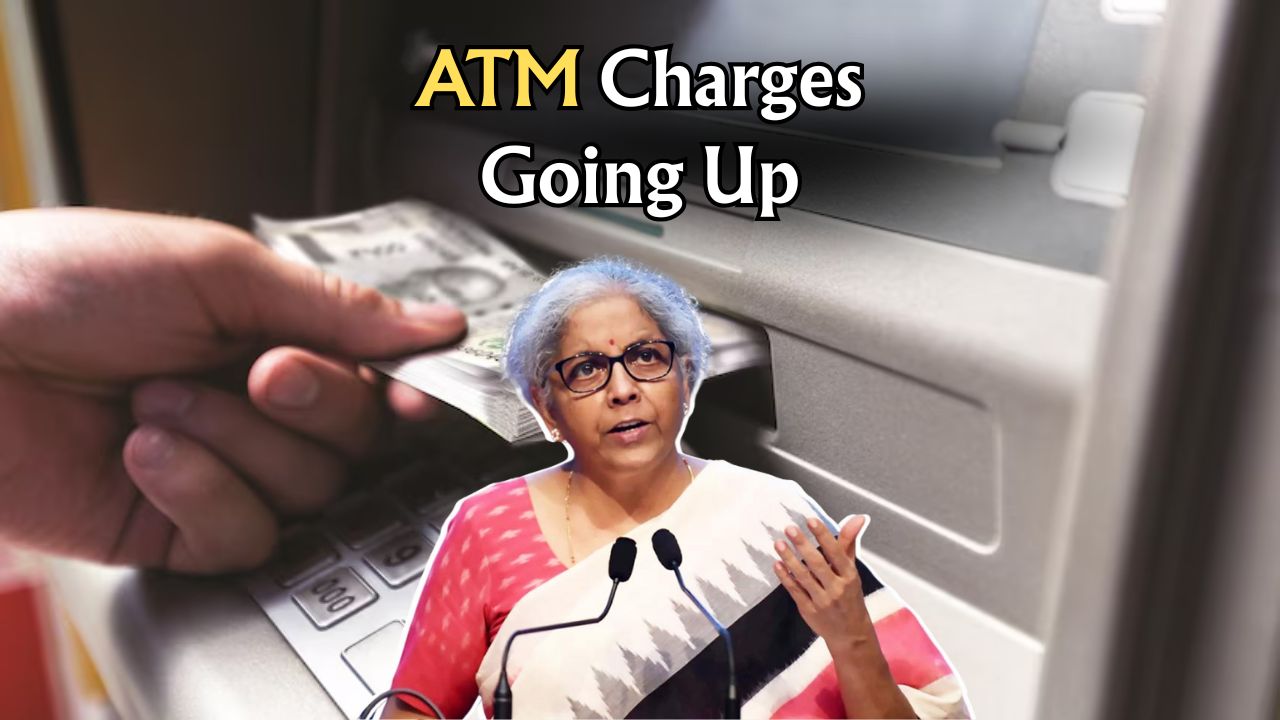New ATM Charges : Starting May 1, 2025, ATM users across India will see a revised structure in withdrawal charges, transaction limits, and service fees. This change will affect both private and public sector bank customers. The Reserve Bank of India (RBI) and banks have jointly reviewed the rising operational costs and decided to implement an updated fee structure to streamline ATM usage and improve cost efficiency.
If you frequently use ATMs for withdrawals, mini statements, or balance inquiries, it’s essential to know how these changes may impact your monthly transactions and budget.
Why Have the ATM Charges Changed?
The primary reasons behind this update are:
- Rising ATM maintenance and operational costs
- Increasing use of digital transactions reducing ATM dependency
- Demand for better ATM infrastructure and services
- Standardization across banks to simplify customer experience
Banks will now follow a more uniform charge model for both on-site and off-site ATMs, with changes applied to savings account holders, salary accounts, and current accounts.
Updated Free ATM Transaction Limits
As per the latest guidelines, here are the revised monthly free transaction limits for different bank account holders:
Free ATM Transaction Limits (Effective May 1, 2025)
| Account Type | Bank Type | Free Transactions (Own ATM) | Free Transactions (Other ATM) | Total Free Transactions |
|---|---|---|---|---|
| Regular Savings | Public Sector Bank | 5 | 3 | 8 |
| Regular Savings | Private Bank | 5 | 3 | 8 |
| Salary Account | Any Bank | 5 | 3 | 8 |
| Premium Accounts | Any Bank | Unlimited (Own Bank) | 5 | Unlimited/5 |
| Jan Dhan Account | Any Bank | 5 | 3 | 8 |
| Senior Citizens | Any Bank | 6 | 4 | 10 |
| Rural Area Accounts | Any Bank | 10 | 5 | 15 |
Note: These free limits include both financial (cash withdrawals) and non-financial transactions (balance inquiry, mini statements).
New Charges After Free Limit Exceeds
After exhausting the monthly free transaction limit, users will be charged a fee for each additional ATM transaction.
Revised Charges Per Transaction (Post Free Limit)
| Type of Transaction | Bank Type | Charges (Per Transaction) | GST Applicable |
|---|---|---|---|
| Cash Withdrawal | Any Bank | ₹23 + GST | Yes |
| Balance Inquiry | Any Bank | ₹9 + GST | Yes |
| Mini Statement | Any Bank | ₹9 + GST | Yes |
| PIN Change | Any Bank | ₹9 + GST | Yes |
| Declined Transactions* | Any Bank | ₹25 + GST | Yes |
*Declined due to insufficient funds.
This increase from the earlier ₹21 per withdrawal is aimed at managing ATM infrastructure costs better and promoting digital transactions.
ATM Charges for International Transactions
For those using ATMs abroad, the new structure brings transparency in global charges too:
International ATM Transaction Charges
| Type of Transaction | Charges (Approx.) | Additional Notes |
|---|---|---|
| Cash Withdrawal | ₹300 – ₹500 per txn | Varies by bank and currency |
| Balance Inquiry | ₹100 – ₹150 per txn | Some banks offer free once/month |
| Currency Conversion Fee | 2% – 3.5% of transaction | Added to withdrawal charges |
Pro Tip: Use international ATMs less frequently and opt for forex cards for lower conversion charges.
How to Avoid or Reduce ATM Charges
Here are practical ways to avoid exceeding free limits and incurring extra fees:
- Use net banking or mobile apps for balance checks and mini statements
- Withdraw larger amounts less frequently instead of multiple smaller withdrawals
- Visit home branch for cash needs above ₹50,000
- Opt for digital wallets or UPI for small transactions
- Switch to premium accounts if you need frequent ATM usage
Banks That Offer Higher Free ATM Usage
Some banks provide higher transaction limits or no charges under certain schemes:
Banks with Relaxed ATM Rules
| Bank Name | Special Feature |
|---|---|
| SBI | 10 free transactions in select cities |
| HDFC Bank | Preferred account holders get more limits |
| ICICI Bank | Gold/Silver account holders get benefits |
| Axis Bank | Up to 10 free transactions with premium |
| Bank of Baroda | Free unlimited transactions in rural areas |
Always confirm your eligibility and account category to know your actual limit.
With these new ATM charges taking effect from May 1, it’s crucial for users to stay informed and modify their transaction habits to avoid unnecessary fees. Whether you’re a frequent ATM user or an occasional one, understanding the updated structure can help you save money and adopt smarter banking habits.
The rates and charges mentioned above are as per publicly available bank circulars and RBI guidelines as of April 2025. These are subject to change at the bank’s discretion. Users are advised to check with their respective banks for account-specific rules and latest fee structures.









